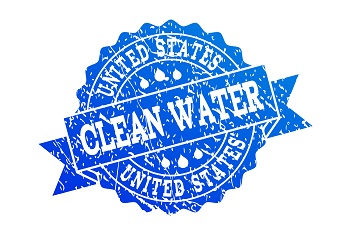The EPA has issued new guidance describing measures and other considerations federal agencies should adopt when fulfilling their roles in the Clean Water Act’s (CWA) Section 401 state certification process, particularly in relation to federal permitting of infrastructure projects. Specific topics addressed in the guidance are timelines for review and action on Section 401 certifications, the scope of federal reviews of certifications, and the scope of information states need to review in a certification request.
The guidance is intended to update an interim handbook on the Section 401 certification process the EPA issued in 2010 under the Obama administration. According to the Agency, the 2010 document no longer reflects the most recent case law interpreting the plain language of CWA Section 401; has neither been updated, finalized, nor formally withdrawn; and may lead to confusion for both regulators and the regulated community.
“This is especially true in circumstances, including litigation, in which such a document may be interpreted as mandating certain actions or outcomes,” the EPA wrote in a letter to U.S. governors. “Withdrawal of the 2010 Interim Handbook is intended to reduce stakeholder confusion. The EPA anticipates that the additional activities it is undertaking in response to [Executive Order] 13868, including additional engagement with state and tribal stakeholders, issuing new guidance, and modernizing federal rules implementing CWA Section 401, will increase transparency and regulatory certainty.”
The President’s Executive Order
CWA Section 401 requires that a project proponent provide federal permitting agencies with a certification from the state in which the project will occur; the certification indicates that the project will comply with CWA water quality standards in that state. Additional state certifications are required if the project will affect navigable waters in other states. If there is no applicable water quality standard, the state must certify to that effect. Section 401 indicates that the state or authorized tribe must act on a certification request in a reasonable time not to exceed 1 year.
Section 401 state certification is a major step in infrastructure improvements, a factor President Donald Trump emphasized in April 2019 in Executive Order (EO) 13868 (Promoting Energy Infrastructure and Economic Growth). The EO directs federal agencies to issue guidance and, if necessary and appropriate, promulgate and/or amend federal rules to correct “confusion and uncertainty” in the state certification process so that federal permitting of infrastructure improvements can occur efficiently.
Timelines
One major change from the 2010 handbook affects the 1-year maximum timeline set in Section 401. The handbook states that the timeline begins upon the state’s receipt of a complete application for a certification. “The CWA does not use that term and therefore its use in the EPA’s guidance document as a regulatory trigger, without notice and comment rulemaking, is inappropriate,” the EPA now says. “Upon receipt of a written request for certification, the timeline for review begins, and the EPA recommends that states and tribes promptly begin evaluating the request to ensure timely action.” [emphasis added]
In addition, the guidance indicates, if a state or tribe does not grant, deny, or voluntarily waive the Section 401 certification within the established reasonable timeline or seek an extension of time, federal permitting agencies are authorized to determine that the Section 401 certification requirement has been waived and issue the federal permit or license
Scope of Review
The guidance recommends that the scope of a Section 401 certification review and the decision whether to issue or deny a Section 401 certification be limited to an evaluation of potential water quality impacts.
“If a state or tribe issues a Section 401 certification with conditions beyond the scope of Section 401, i.e., conditions not related to water quality requirements, or has denied a water quality certification for reasons beyond the scope of Section 401, federal permitting agencies should work with their Office of General Counsel and the EPA to determine whether a permit or license should be issued with those conditions or if waiver has occurred,” states the guidance.
Relevant Information
There is no CWA provision that requires specific information to be submitted with a Section 401 certification request. Similarly, there is no statutory provision that prohibits a state or tribe from requesting specific information or additional information to help inform its decision on whether to issue, issue with conditions, or deny certification or whether to waive the certification requirement. However, the guidance notes that to evaluate a certification request, a state or tribe should only need the application materials submitted for the federal permit or license.
“The EPA encourages states and tribes to consult past certifications, available state or tribal water quality data and information (such as stream gauges and water quality monitoring information), and any standard operating procedures for project reviews to inform their conversations with project proponents and federal permitting agencies about the certification process and potential project-specific information needs,” the guidance says.
The document also provides guidance and recommendations regarding early collaboration between all parties, development of model Section 401 certification procedures, and federal provision of technical assistance throughout the Section 401 process.
Finally, the EPA’s regulations implementing Section 401 were last updated in 1971. The Agency says in the guidance that it intends to update those regulations consistent with timelines included in the EO and may consider adopting some elements of the guidance during the rulemaking process.


